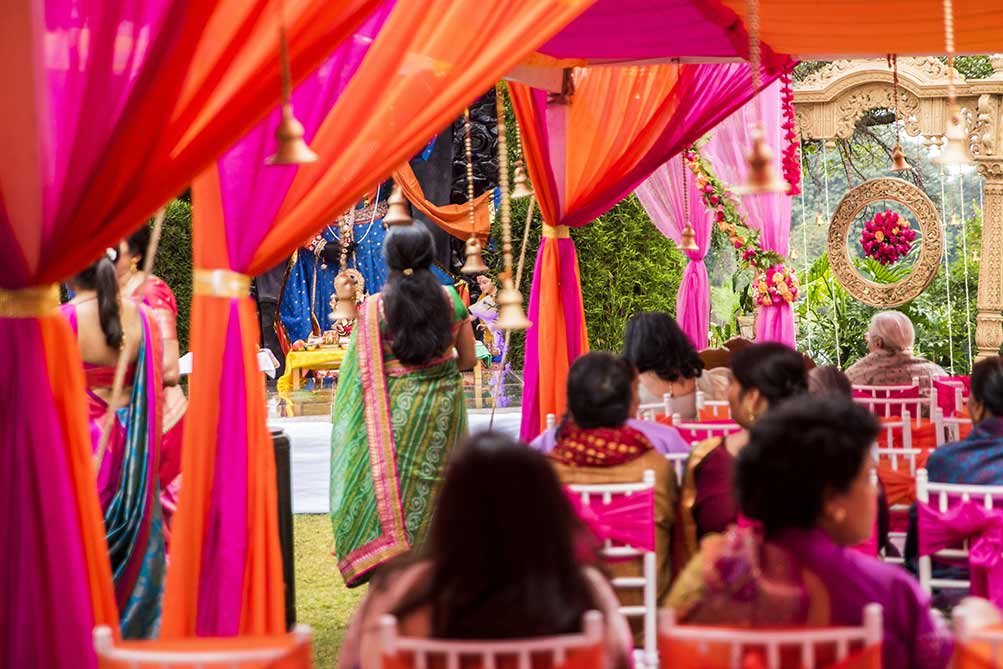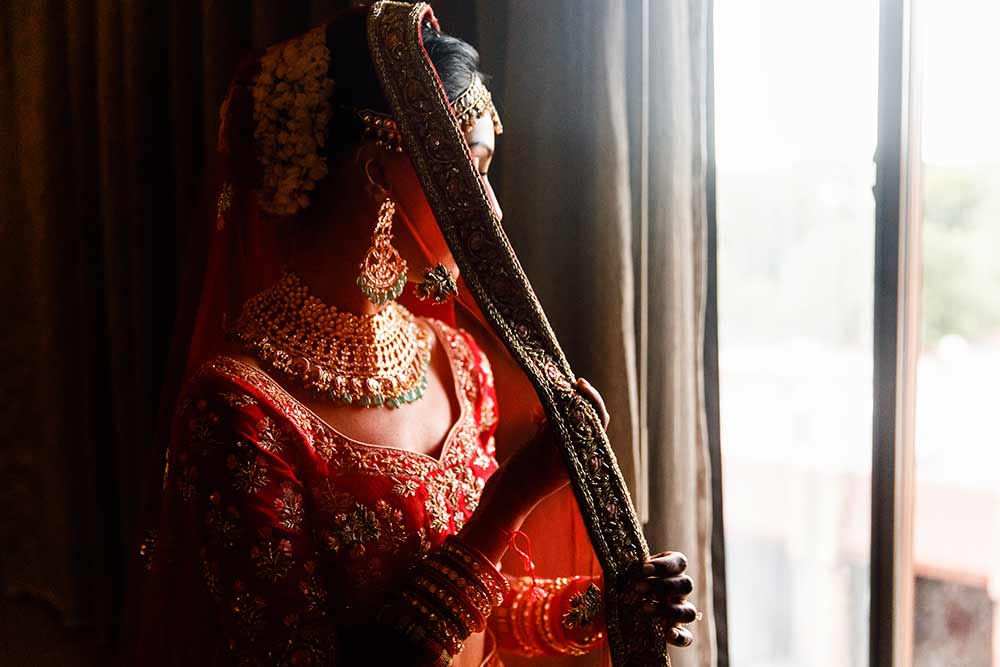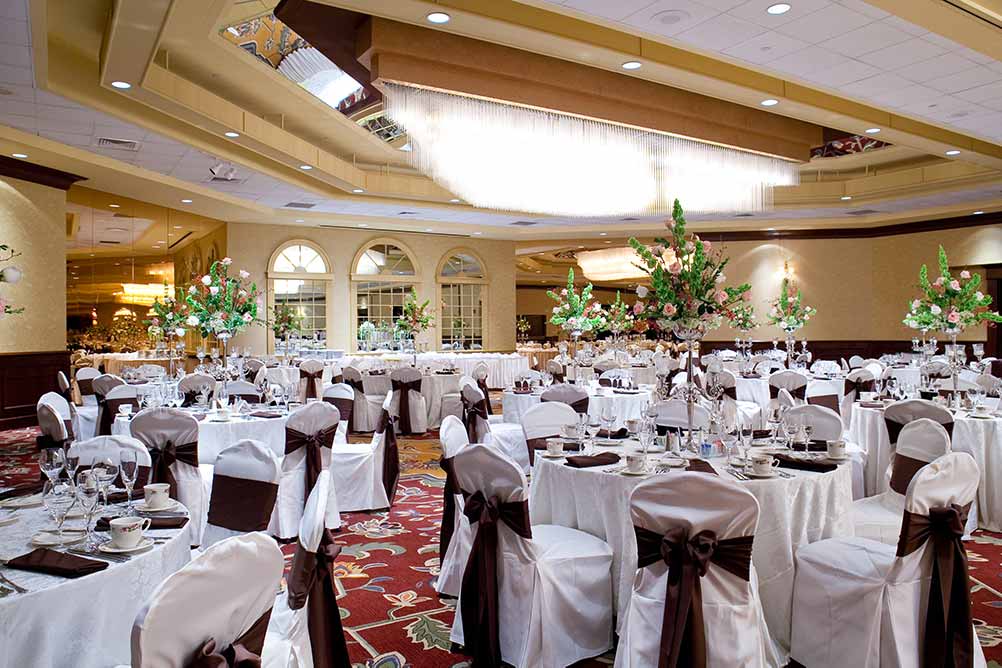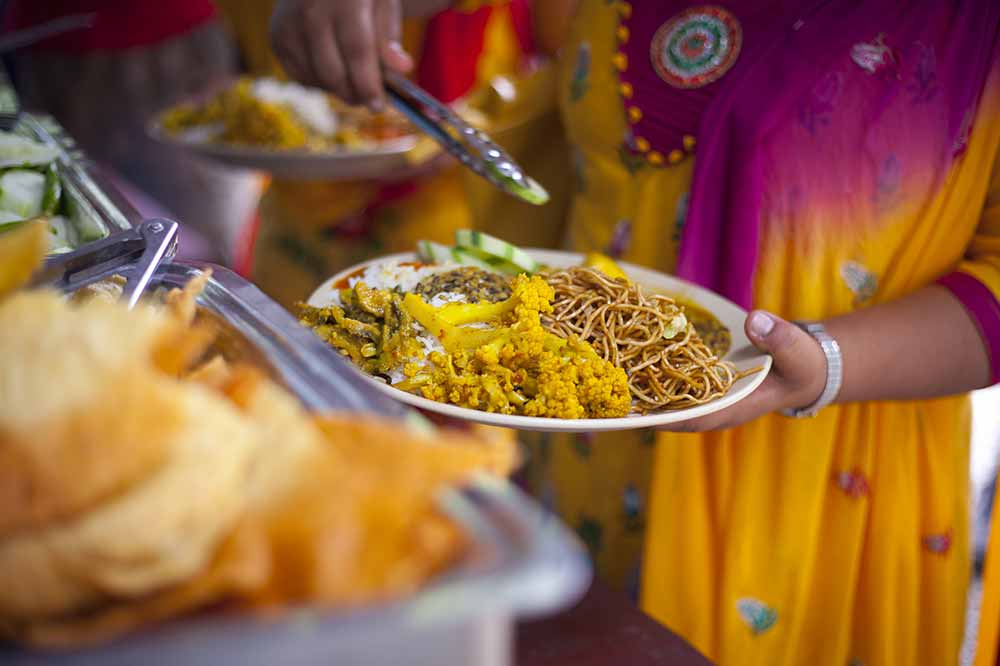Weddings are some of the most festive occasions any of us ever experience. Whether it’s an elaborate religious ceremony or a simple one, and no matter what your religion, region or ethnicity, weddings are enjoyable affairs where everyone comes together to not only celebrate the couple tying the knot, but also to catch up with old friends and family, and to create new bonds of love with new friends and family. This is particularly true for India and many South Asian cultures, which highlight the fact that a wedding doesn’t just happen between two people, but their entire family and friend circles too. In that sense, having a few hundred guests, multiple events spread over multiple days, and a big budget makes absolute sense—in fact, these are the things that make the occasion even more festive!
However, especially over the last decade, people have become more aware of the fact that weddings, though festive, can often turn into events that are unsustainable and harmful for the environment. According to some reports, around 10 million weddings take place in India every year, and each one of these events leaves behind loads of waste such as used plastic wastes in the form of cutlery, décor, water bottles or glasses, used flowers, and most prominently, food waste. While in India, a lot of the wedding décor is still made of cloth and other materials which can be (and are) reused at other events by the planners and organisers, the amount of waste generated—especially plastic and food—can be immense.
This is clearly a problem, and not only because plastic waste is leading to huge issues like overflowing of landfills, contamination of water bodies, soil and air, and harm to living creatures dependent on each of these. It’s also because food waste is simply inhumane today, given the number of people in the world who have to go without it and suffer from malnutrition. Since the COVID-19 pandemic, making weddings sustainable and managing the waste generated there is even more important to avoid any kind of contamination or transmission of disease. In the wake of the pandemic, this is a factor you absolutely have to take into account now.
So, while making a wedding festive is a must, it doesn’t necessarily have to be wasteful. Over the last few years, sustainable weddings have emerged all over the world, with planners offering great options to minimise both plastic and food waste, while ensuring the wedding is unique and festive at the same time.
It’s All About Decisions
You already know you have to make plenty of decisions about everything to do with your wedding, from your trousseau and décor to what to gift others. But making these decisions more sustainable and eco-friendly is now a huge necessity, as indicated above. You could, of course, pay a planner to do it all for you, but as a 2018 study in the journal Waste Management points out, this is easier said than done. The study explains that while waste management is understood to be a priority by most event organisers, exactly how to go about it is still blurry for most. So, the intention may be there, but execution can become a problem.
The study also points out that there are a number of factors we must focus on to reduce the residual waste generated at events, including:
• The hosts
• The participating vendors
• The selection of materials used
• The participants or guests
While the environmental values of the hosts and vendors matter the most in making an event sustainable—making you a key factor influencing it all as the bride or groom—even the participants have to be aware of your intentions at the event so that they can contribute actively. It’s therefore very important to indicate through your conversations and the invites (which could be e-invites or elaborate ones made of recycled paper and other organic materials) that you’re going for an eco-friendly affair at your wedding. Ask people to suggest ideas to make it even more engaging, but remember, you are the one who can make the most effective change by taking key decisions. Here are some such decisions you should be focusing on.

Be Wise About Location & Travel
When you select a venue, of course you have to think about the size and surroundings to decide if it fits well with your theme. However, one thing you should also take into account is the distance everyone will have to travel to get there. Remember, travel requires fossil fuels and is known to generate pollutants. So, go for a location that people can travel to easily. You could also organise large vehicles to transport people within the same city, especially if you have most guests arriving at airports and stations at the same time or are staying at one hotel or location. This could also be cost-effective.

Go For Locally Sourced Decor
Vocal for local is a big deal when it comes to sustainable events, so make sure you include plenty of opportunities for local artisans, vendors and markets through your event—in fact, for large scale events like weddings, you might even get a good deal from these groups of people. Making your décor reflect local arts, crafts and culture is certainly the best way, but you could also go for a menu made up entirely of local cuisines instead of opting for ingredients that have to be flown in or transported from far-off places.

Repurpose & Rent For Fashion
Repurposing your parents’, grandparents’ or even in-laws’ clothes and jewellery for weddings is not just a smart decision, environmentally. It can also give your wedding a vintage appeal. Given that Indian culture is anyways rooted in the idea of “waste not, want not”, you’re likely to find plenty of vintage pieces to make your sustainable wedding stand out from within your friend and family circle. Another trend that’s picking up quickly is to invest in good quality rented wedding attires and jewellery. This is an especially sustainable practice as most people anyways end up packing away the jewellery and elaborate saris, dhotis or lehengas they wear at their own weddings. So, why not just rent it for the occasion and save the closet space?

Choose The Right Food & Dining
Given that food waste is the biggest issue at most weddings, you should take an early decision about the menu. The thing that often leads to food waste is a lack of decision regarding the theme. The first thing you have to remember here is that food at a buffet is created in bulk. If there are too many fresh dishes a caterer, any caterer, has to prepare, not all of them will taste amazing—and that will lead to a waste of some dishes. So, if you have a jumble of too many cuisines at your wedding buffet, you’re likely to have more widespread waste. Instead, pick a cuisine or theme you want to focus on, limit the number of options, and ask the caterers to focus on delivering those few dishes. The other factor that often affects guests is a system of eating while standing up. Ensure there are enough seating arrangements for all, and you’ll find that people can eat more patiently, without wasting their food at all.

Manage Leftovers
It’s important to remember that no matter what you do, there will be some waste or leftover at an event as grand as a wedding. The best thing you can do is to anticipate this and take steps ahead of time. You could get the caterers to pack leftovers for your guests, and the families of the caterers as well as the other people working behind the scenes to make your wedding a success. Imagine the amount of goodwill and positive vibes this will generate. The other option is to pre-inform NGOs that deliver food to the needy in your city so that the leftovers can be picked up immediately.
What are some of the other methods you can use to make your wedding more sustainable? Let us know in the comments!